Big Bang and God Are the Same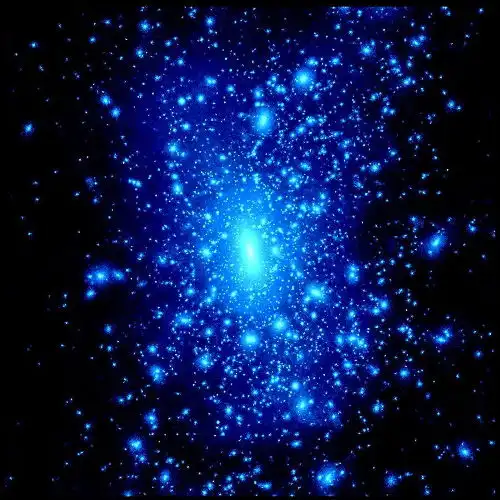 Speculations by Stefan Stenudd
In case of a divine creation out of nothingness, creatio ex nihilo, that's not a real nothingness to begin with, since God is there. If God's not nothing, there's something – even though that something is very different from the something of our universe. In case of the Big Bang, already the Greeks told us that something cannot come out of nothing. At least there had to be a something making something possible to appear out of nowhere. The astrophysicists are starting to seriously question the Big Bang idea, regarding the notion that it would have happened out of nothing. A bunch of theories are being presented and tested, as much as can be done in this field. Also the idea of an ever-present universe, although dynamic, is revived by some scientists.
No TimeTime is at the core of the problem, whether we imagine an eternal universe or not. Christianity and Big Bang theory are much the same regarding time, as well. Already in the 4th century, Augustine of Hippo said that there's no point in asking what existed before God said “Let there be light!” since that was when God created time as well. There was no before. Which is exactly what the Big Bang theory claims.
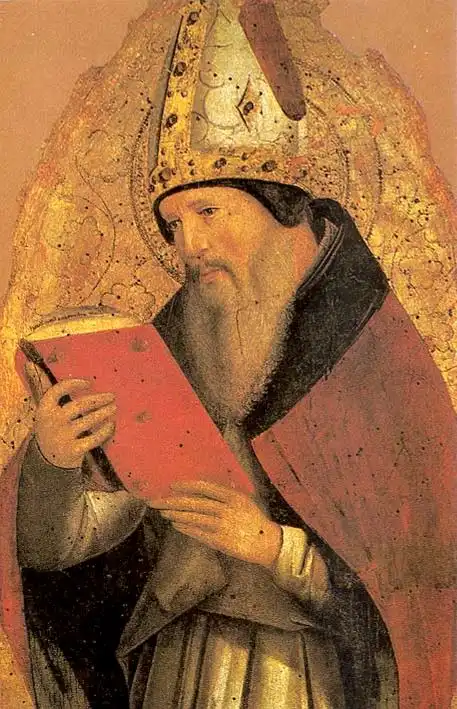 Augustine of Hippo, 354-430 CE.
I wonder if time exists at all as a separate entity. There is movement, there is change. If there is neither movement nor change, where is time? Maybe we should stop regarding time as a dimension, but just the movement within the dimensions of space. Then we would say – sort of like the Buddhist – that everything changes, always. Seeing the start here or there is of little relevance. It's just a lot of movement between things in relations to one another. Now it's here, now it's there.
The Effect Is the CauseThe natural sciences are founded on Aristotle's principle of cause and effect. Something happens because of something else. That's also timeline thinking. Before and after.Even if we imagine a universe where cause is preceded by effect – as if the latter is longing for the former – it's still on a timeline, although reversed. It's an interesting line of thought, though. Kind of religious. The divine plan, the goal deciding how the voyage will be.
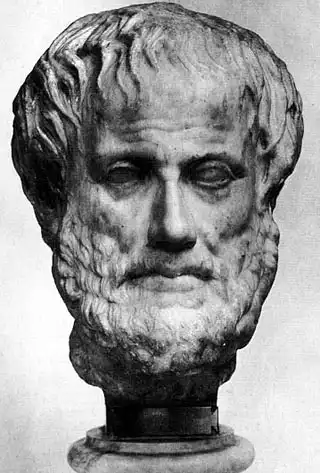 Aristotle, 384-322 BC.
Maybe that's the true difference between a divine reality and a physical one: In the former, the effect is the cause, because it's what God intended, so the result was actually what caused the cause, so to speak. In a strictly physical universe, though, there has to be a cause initiating the process to lead to the effect, and that effect is nothing but a result of the cause, since there is no intention towards it. Things happen because that's how things work. But in a universe where there is no will or intention between cause and effect, there is no way of assuring their order of power. Something moved from here to there, because of this or that. Well, since it is now there, the cause was bound to get it there and could not get it elsewhere. So, what is cause and what is effect?
IntentionThe human being has struggled long with the concept of free will: I want to go there, so I can. Otherwise I would remain here forever. The Greeks thought a lot about it, and so did people in many other cultures and eras. They wondered, how are we at all able to move?Intention makes it happen. Without intention, no movement. So, everyone thought that this must somehow be true for everything in the universe. Some kind of intention, or there would be no movement, no change, and the whole universe would be like dead. In every meaningful way of looking at it, the universe would cease to exist if nothing happened to it or inside of it.
Like an IdeaI've always found the Big Bang theory amusing, because it's so close to the concept of God's creation. In a vast nothingness (actually, in the Bible this nothing is a primordial sea), God says: “Let there be light!” Suddenly, bang! Everything appears.
 Let there be light. Bible illustration by Gustave Doré, 1866. It's like an idea. I get an idea, which grows like an explosion in my mind, adding details that quickly become more and more defined. Shapes and objects appear in a chaotic cloud of thoughts. Big Bang is like a sudden idea in the head of God.
Who Can Know?But, as mentioned above, God is no final cosmogony. He just leads to new questions: What is God? Where did He come from? Et cetera.Whether there's some kind of God or not, we shouldn't use Him to stop ourselves from continued inquiry. Modern science is so complex, most of us feel completely incapable of following its thoughts. But the Greeks have shown us that still today, even the most advanced scientists wrestle with the same questions the Greeks asked themselves. Can there have been a beginning? Can something come out of nothing? So, I suspect that the solution to the problem of the origin of the universe is either unfathomable or accessible to us all. That's precisely why I allow myself cosmological speculations like this one, although minutely introduced to astronomy. That, and the kick it gives my imagination. I also suspect that the key to the origin of the universe is not to be found in the distant past or the distant future, but in the here and now.
Something or NothingWe're still just starting to understand what the universe is, how it works, and of what it consists. So, I doubt that we know enough to ask the right question.Let's go back to nothing and something. The Greeks said (well, some of them) that something cannot come out of nothing. Nor can something turn into nothing, but that's not questioned by astrophysics. So, if we imagine a something that seems to be enclosed in nothing, it must be all there is. Such a universe, then, must in some way always have been and always will be. No starting or ending dates. The dynamics of it, the movement and changes, can be whatever – but it has to be there always. Well, if the movement and changes stop completely, utterly completely, it sort of ceases to exist – except for the fact that it has a history, it has moved towards non-movement. Then the question is: can it move again? If so, that's not the complete stop. Can something stop so completely that it can never move again? That would be the very end of what astrophysicists call the Big Freeze. Even though it's so extremely far off, I would say it's the prospect we prefer the least. It's so sad. Now, if we imagine instead that our universe is something contained in another something creating it somehow – then the answer to the question of the origin of the universe is none other than the origin of that bigger something in which our universe was created. So, we're back to square one.
Prime Mover TaoIf we look again at the idea of movement and change, making time just a way of mapping these things, then there's no point in searching a beginning or an end, but the process by which things move and change. That's mostly in line with Einstein and his quest for a unified field theory – or Aristotle's Prime Mover.It also happens to be very near what Lao Tzu thought about Tao, the Way, in his Tao Te Ching, the Taoist classic. He described Tao as a primordial natural law from which the universe took form. That law was present before the universe, and would be there even if no universe emerged, still ruling exactly how a universe would be, if bursting out.
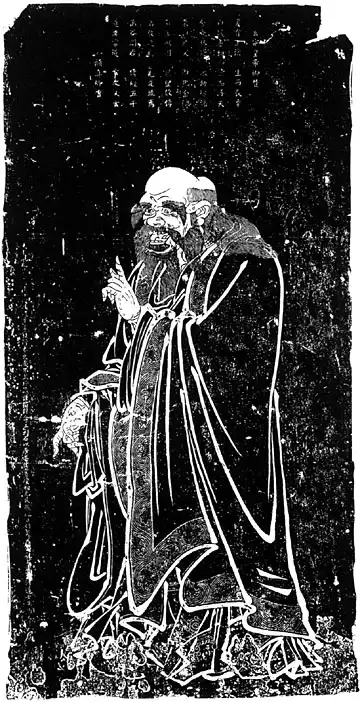 Lao Tzu.
Things emerge out of Tao and return to it, eventually. Therefore, so will a universe born out of it. That compares well to the astronomical theory of the Big Crunch – or the Big Bounce, where an oscillatory universe goes on forever.
Ever-Present LawThe Big Bang theory mentions the moment of the Bang, before which no natural law can be specified. It's called the Planck time, 10There has to be a Tao for that, if it can happen at all. A Prime Mover making the universe appear in whatever shape. The truly unifying field theory should encompass that force. That's why I think we can focus on the present. If there is one law, one force, by which our universe was possible to emerge – then that law is ever-present. Finding it, we have the key to everything. I think it's possible to find, if we just get the idea. And I think that it has much of the characteristics of an idea.
We Find What We SeekFrankly, I have my doubts about reality. It might be more like the computer age expression “what you see is what you get” than we are comfortable with. Or the much older expression: “Seek and ye shall find.” To find anything we must be looking for it, and we must be able to see it as it is.We can't say anything for certain about the world we live in, until we are sure about how to extract objective reality from our impression of it. For example, the Big Bang theory would have been impossible for us to accept without the previous notion that the world had a starting date. So, we searched for a start and we thought we found it. Maybe we did and maybe we didn't find the worlds starting point, but the real lesson is that we find what we seek and rarely something else. Discoveries tend to come when we are prepared to accept them, or even wish for them. What reality is really like is certainly something very different from what our senses perceive. Instruments of our science have shown that to be true, even with something as basic as what we see with our eyes, which is just one part of the spectrum. Other parts give very different views. So, what does the world look like when everything can be seen?
Imagination Is RealThere are patterns. The more we see and learn about the universe, the more intricate the patterns of its working are. But still, when we are able to take it all in, the patterns will stand out and show a design and point to a solution.My bet is on that solution being just as metaphysical as it is physical. To understand the universe we must accept all the ways by which we perceive it. One of the major ingredients, then, is our imagination, our fantasy. I think that fantasy is no less real than the rest. It just works in different ways, expresses the fundamental law of nature differently. But it's part of what the universe is made: “We are such stuff as dreams are made on.” I don't mean it in a symbolic way, like the poet searching a metaphor to express his sentiment. I mean it. In the world of atoms, gravitation, electricity, et al. Imagination is a major force in the universe, maybe the only one. Otherwise it wouldn't be able to encompass the universe. And we can't perceive any other universe than the one we imagine.
Stefan Stenudd December 16, 2011
More Speculations
About CookiesMy Other WebsitesCREATION MYTHSMyths in general and myths of creation in particular.
TAOISMThe wisdom of Taoism and the Tao Te Ching, its ancient source.
LIFE ENERGYAn encyclopedia of life energy concepts around the world.
QI ENERGY EXERCISESQi (also spelled chi or ki) explained, with exercises to increase it.
I CHINGThe ancient Chinese system of divination and free online reading.
TAROTTarot card meanings in divination and a free online spread.
ASTROLOGYThe complete horoscope chart and how to read it.
MY AMAZON PAGE
MY YOUTUBE AIKIDO
MY YOUTUBE ART
MY FACEBOOK
MY INSTAGRAM
MY TWITTER
STENUDD PÅ SVENSKA
|
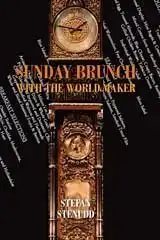 Sunday Brunch with the World Maker
Sunday Brunch with the World Maker